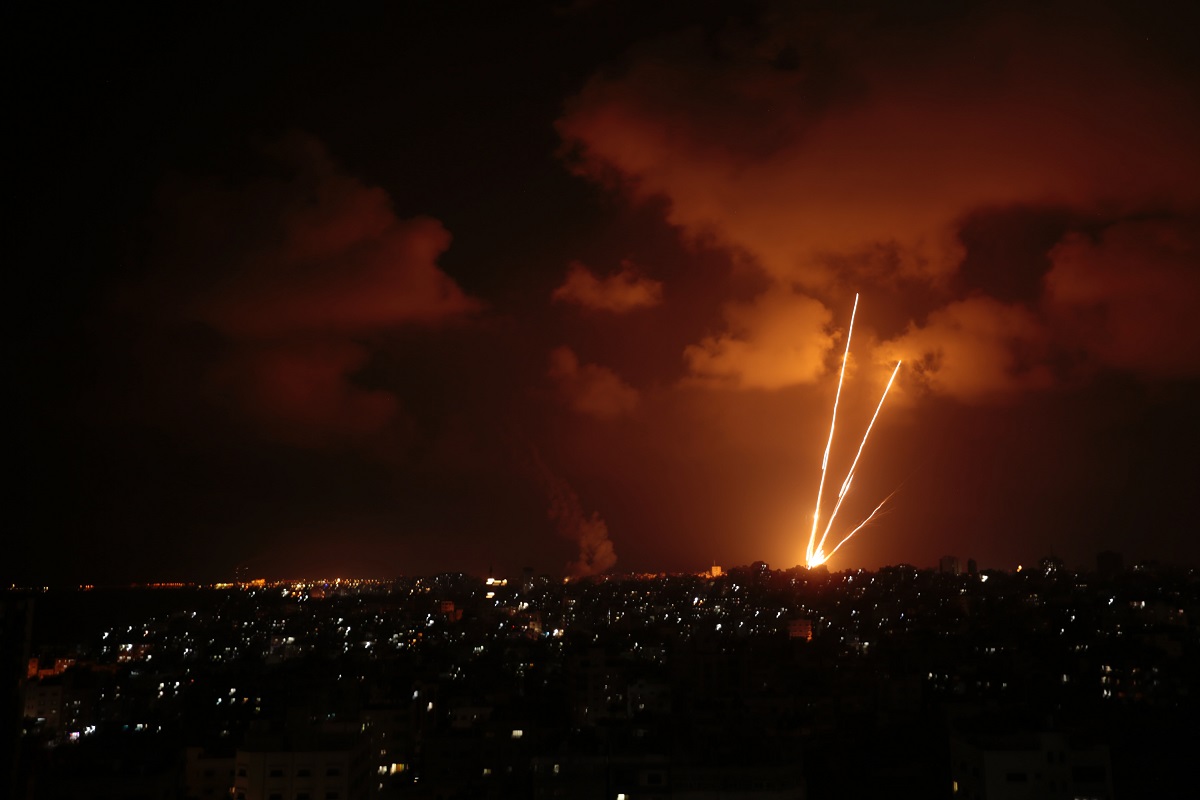 In an era marked by escalating geopolitical tensions, the global arms industry is witnessing a sharp surge in demand. The ongoing conflicts between Israel and Hamas, as well as Russia and Ukraine, have compelled nations worldwide to bolster their defence capabilities.
In an era marked by escalating geopolitical tensions, the global arms industry is witnessing a sharp surge in demand. The ongoing conflicts between Israel and Hamas, as well as Russia and Ukraine, have compelled nations worldwide to bolster their defence capabilities.
Ongoing wars and rising defence budgets have been boosting arms purchases, benefiting arms manufacturers. In fact, global military spending hit a record US$2.24 trillion in 2022, up 3.7% from the previous year, per the Stockholm International Peace Research Institute. This surge, attributed to the Ukraine war, and further boosted by the ongoing Gaza conflict, has spurred demand for weapons as the U.S. equips Israel’s Defense Forces with additional military gear.
As the primary suppliers of Israel’s military arms, the following U.S. arms suppliers may benefit from the escalating demand for their products and technology amid concerns that the ongoing conflict may extend to other regions in the Middle East.
Lockheed Martin (LMT), the biggest defense contractor globally, runs several businesses. The Aeronautics division, its largest, generates over two-thirds of its income from the F-35 fighter jets. The firm also manufacturers and sells missiles and fire control, and space systems that deal with satellites.
The wide moat firm remains one of the largest suppliers of arms and defense systems to Israel, including F-35s, Multiple Launch Rocket System (MLRS) and other military hardware. The company claims it is “proud of the significant role it has fulfilled in the security of the State of Israel.”
“Lockheed should benefit from recent and foreseeable increases in U.S. defense spending, driven in the short term by orders to resupply munitions to Ukraine as its forces expend them faster than they can be made,” says a Morningstar equity report.
In the long run, the Pentagon is focusing on upgrading the military to deal with threats from big rivals like China and Russia. It's also managing terrorism threats in places like Iran, North Korea, and the Middle East.
“Thus, as a bet on the defense industry, Lockheed is hard to beat,” asserts Morningstar equity analyst, Nicolas Owens, who puts the stock’s fair value at US$480.
The arms dealer and its investors benefit from the sheer scale of its tens of billions of dollars worth of contracts that provide defined decades-long revenue and profit streams, he adds.
British aerospace and defense giant, BAE Systems (BA.) is the largest defense contractor in Europe and one of six prime contractors to the U.S. Department of Defense. The company has five operating segments including electronic warfare systems, the cyber, security, and intelligence segment, combat vehicles and munitions segments, among others.
“Live footage of Israel's domestically developed short-range missile defense system referred to as the ‘iron dome’ demonstrates capabilities most closely associated with RTX's and BAE Systems' munitions portfolios,” says a Morningstar equity report.
The defense market is experiencing a growth spurt, driven by rising global security concerns, which have been amplified by the conflict in Ukraine. “We anticipate this growth will be uninterrupted for at least several years, considering that many countries, particularly in Europe, have underspent since the end of the Cold War,” says Owens, who puts the stock’s fair value at GBX 1,170.
Given its significant stakes in a broad array of major international defense projects, BAE Systems is strategically positioned to benefit. The contractor is well aligned with U.S. Defense Department growth programs (45% of its revenue) and stands to gain from increased U.S. defense spending as tensions with Russia and China continue to escalate.
Further, expectation of “the European defense budget to increase by almost 35% in the next five years,” will continue to drive BAE’s business across segments.
RTX (RTX) is an aerospace and defense behemoth created from the merger of United Technologies and Raytheon. Its businesses include Collins' aerospace componentry and subassemblies, Pratt & Whitney's engines, and Raytheon's missiles, sensors, and communications offerings.
Raytheon supplies a range of defense hardware, including Iron Dome missiles used by Israel, which are a key component of the Iron Dome missile defense system, used by Israel army to intercept and destroy incoming drones, cruise missiles, and rockets.
RTX is a combination of “powerhouses in the commercial aerospace and defense contracting industries and is unique in its relatively even split between commercial and defense revenue,” says a Morningstar equity report, adding that most other firms in the industry are heavily skewed one way or the other.
RTX’s Raytheon segment is well positioned to benefit from geopolitical tensions and outright warfare which have forced many countries, including the U.S., to increase their defense spending.
“We assign the Raytheon segment a wide moat based on intangible assets, stemming from product complexity and a contract structure that largely grants monopolies to government suppliers, and switching costs, [mainly] due to the mission criticality of the product, long product cycles, and a lack of viable alternative suppliers once a program is in production,” argues Owens, who puts the stock’s fair value at US$111.
Many of RTX’s sensors are deeply integrated into military aircraft and ships, which have product cycles lasting decades.







:quality(80)/cloudfront-us-east-1.images.arcpublishing.com/morningstar/UBIOFDNVTVFQRPGDOGUBQKR27Y.jpg)














